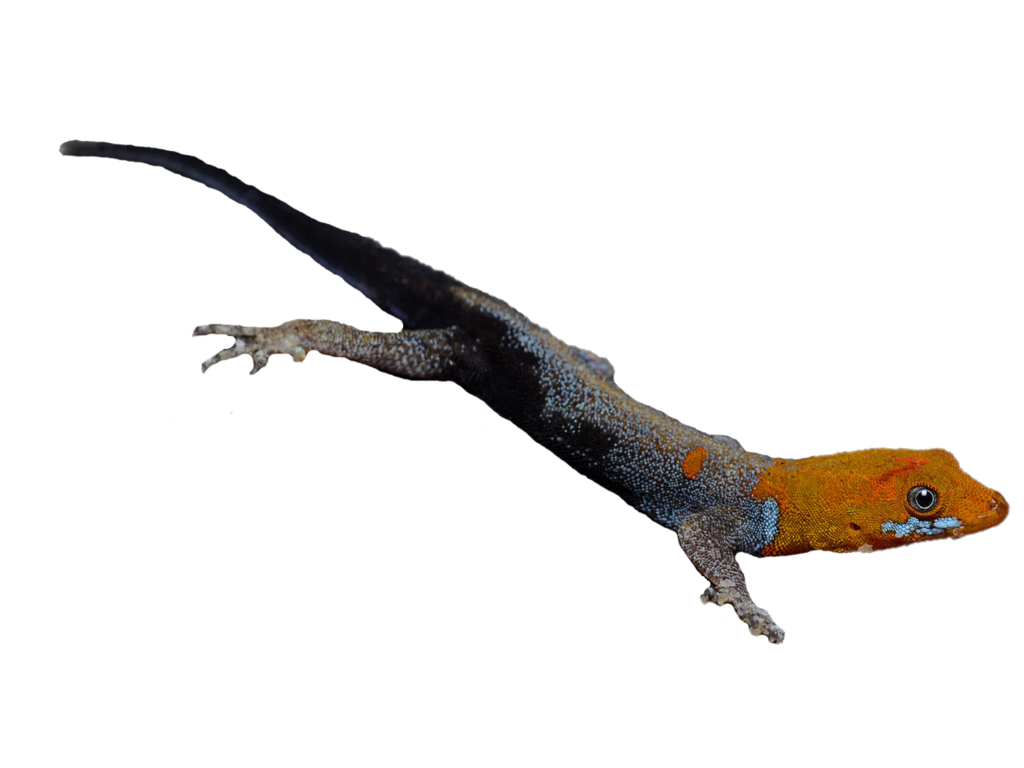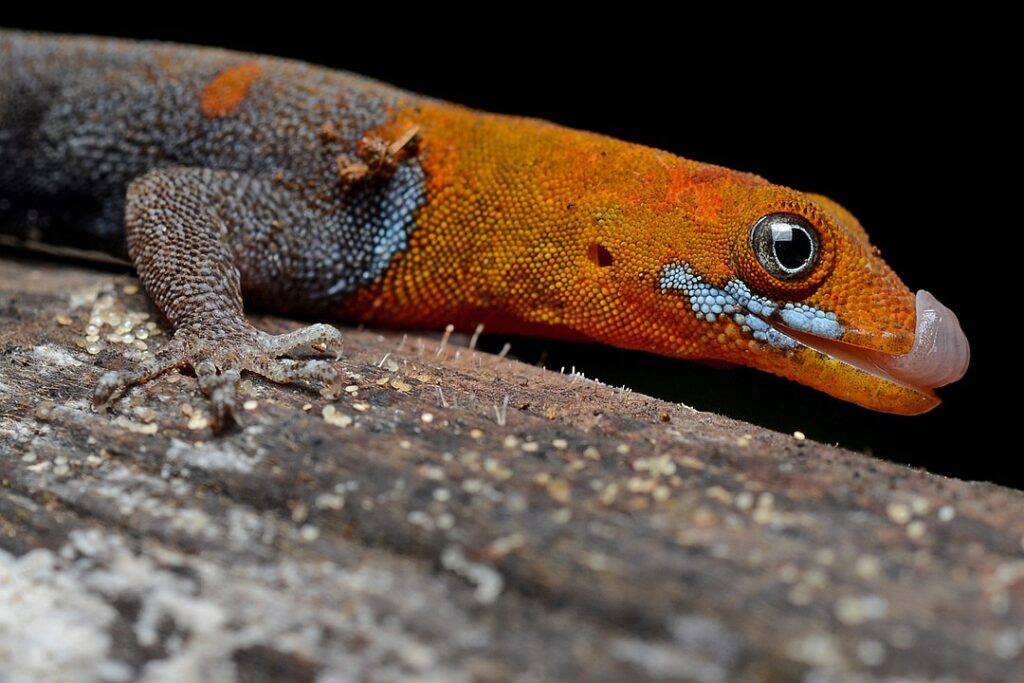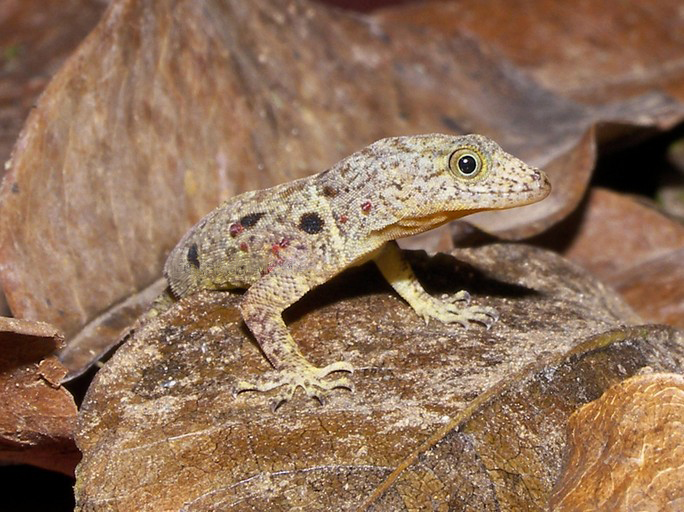Yellow-headed gecko
Gonatodes albogularis

Gecko with claws
The yellow-headed gecko is a small and quick lizard. It prefers to live along the coasts, and in some places on hills in the surrounding countryside. They are often found near human settlements. The lizard is mainly active during the day, but avoids direct sunlight. A characteristic feature of the yellow-headed gecko is that it has perfectly round pupils. The toes on their feet do not have lamellae as in most gecko species, but ordinary claws. Yellow-headed geckos usually live alone, and can get into fights when they encounter fellow geckos.

Photo: Geoff-Gallice-CC-BY
Several females lay eggs in the same place
In the yellow-headed gecko, the female and the male differ greatly in appearance. The male gecko is very colourful, and the female is greyish. During the mating season, males fight intensely over females and intimidate each other, beating heavily with their tails. After mating, the female lays one egg at a time in a sheltered place. Many different females lay their eggs in the same place, preferably in small holes in branches and trees. It takes 3–4 months for the eggs to hatch, and the chicks are able to fend for themselves immediately.

Photo: Esteban-Alzate-CC-BY-SA
Distribution worldwide
The warm parts of Central and South America, Cuba, Jamaica and Haiti.

Threat based on the Red List

Trade regulations
CITES: Not listed.